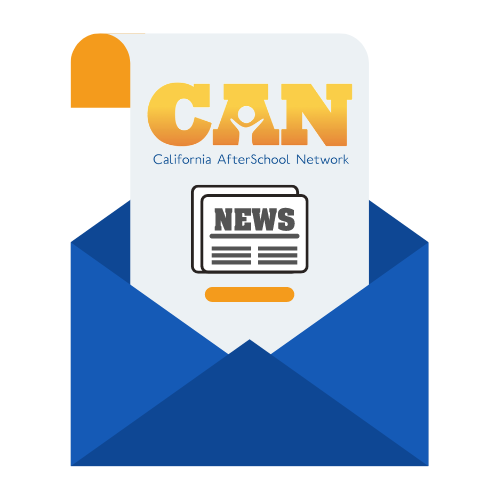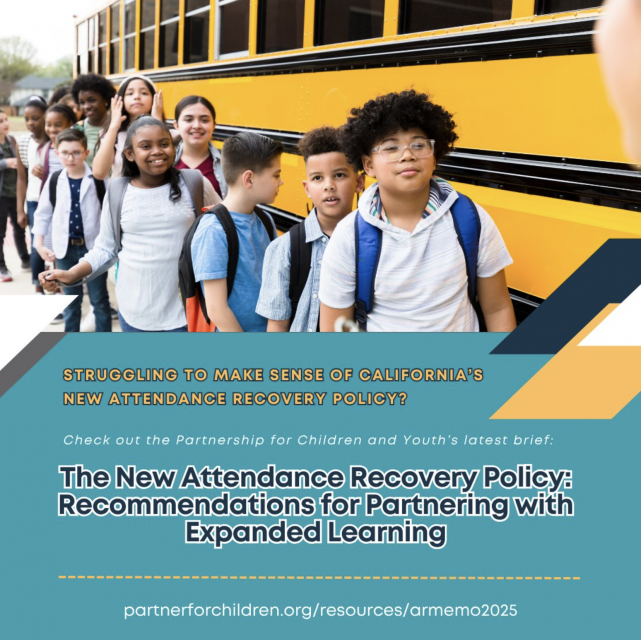Program Planning & Development
Attendance Recovery Resources
Updated September 2025
School districts statewide are preparing to implement California’s new Attendance Recovery policy, which helps LEAs recover lost ADA funding and learning by offering extra academic support outside school hours. Attendance Recovery programs are optional and can be offered in conjunction with ELO-P to realize fiscal efficiencies and expand student access to ELO-P. Below are a few resources to support the development and implementation of these programs.
CDE Update: Revised ELO-P Plan Guide is Posted on CDE Webpage
November 22, 2024
 The revised and improved Expanded
Learning Opportunities Program (ELO-P) Plan Guide is now
available on the California Department of Education (CDE) website
at https://www.cde.ca.gov/ls/ex/elopinfo.asp.
The revised and improved Expanded
Learning Opportunities Program (ELO-P) Plan Guide is now
available on the California Department of Education (CDE) website
at https://www.cde.ca.gov/ls/ex/elopinfo.asp.
The ELO-P Plan needs to be completed every three years pursuant to the requirements in California Education Code Section 46120.
Field Guide: Creating Integrated, School-Based Systems of Care
CAN is a proud contributor to WestEd’s newly released guide - Supporting California’s Children Through a Whole Child Approach: A Field Guide for Creating Integrated, School-Based Systems of Care.
This field guide is a first step by a collaborative of California child-serving education, health, and social service experts and leaders to further California’s current efforts toward one effective, integrated, comprehensive, school-based child-serving system. The guide includes guidance for both local education agencies (LEAs) and state leaders, with details and implementation guidance on a wide variety of cross-sector initiatives to support the whole child.



